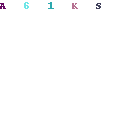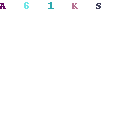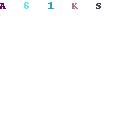The Asian Human Rights Commission (AHRC) has received updated information regarding the disappearance of several activists of a proscribed nationalist group, Jeay Sindh Muttehda Mahaz (JSSM), from Sindh Province. In the recent days, the Rangers and police, in front of dozens of onlookers, have arrested two cousins, and since then their whereabouts are unknown. Family members, including women and children, were then tortured at a bus stand for asking questions about the arrests. Next, in relation to a protest against the construction of the China-Pakistan Economic Corridor (CPEC), several persons have been arrested and five women and one child are missing. Additionally, three other activists of JSSM have been arrested from their homes; their whereabouts are unknown.
The rule of law has collapsed in Pakistan, where the law enforcement agencies, including the military and their organisations have been given absolute powers to arrest, conduct encounter killings, shoot at sight, and disappear persons. Courts take too long to give cognizance to the cases of enforced disappearances; until then the disappeared persons are killed extrajudicially. Second to Balochistan Province, Sindh has become a center for the disappearance and encounters of political opponents who oppose military presence.
CASE NARRATIVE:
The Jeay Sindh Muttehda Mahaz (JSSM), a proscribed organization, is struggling for the self-autonomy of the Sindh Province in relation to its resources. The JSMM has been holding a resistance movement against a mega project, the China-Pakistan Economic Corridor (C-PEC). According to JSMM, CPEC is planned in order for the occupation of the lands, seas, and coasts of Sindh and Balochistan Provinces.

On February 27, Mr. Governor Ali Kolachi, 49, son of Allah Dino Kolachi, resident of Seehar Station, Dokri Taluka, Larkana District, Sindh Province, was traveling with his family to attend a wedding ceremony. When Ali and his family, more than a dozen strong, including women and children, arrived at the Dadu Bus Stand, the Senior Superintendent of Police (SSP), Dadu District, Sheeraz Nazir, arrived with a police party. Some were dressed in civilian clothes and some were uniformed men donning Pakistan Rangers uniforms. They arrived in more than half a dozen vehicles, and apprehended Mr. Governor Ali Kolachi and his cousin Mr. Sadr Uddin Kolachi. When female family members asked the officer why they were doing so, the Rangers began a baton charge on the women and the children present. Since then the whereabouts of the two men is not known. The Dadu District police including high officials deny that the Kolachi brothers are in their custody.
Governor Kolachi’s wife has also filed a petition in the Sindh High Court for his safe recovery, but the court has, as usual, not taken cognizance of the petition, because military agencies are involved. The Rangers had recently released Governor Kolachi’s brother, Sadr Uddin Kolachi, from captivity a few months ago. During this earlier enforced disappearance that lasted more than one year Sadr Uddin Kolachi was tortured severely. Due to the torture endured he lost his right eye and he lost the ability to walk properly. Sadr Uddin Kolachi has been serving as the JSSM divisional head.
Mr. Governor Kolachi is a JSSM activist; he was in the process of organizing a memorial meeting for those killed in a bomb blast that took place on 5 March 2011 at his party office in Jumma Goth, Karachi. Several persons were killed in that blast, including Governor Kolachi’s younger brother, Zulfiqar Kolachi.

It was reported in a section of the media that it was the Pakistan Rangers who hurled a hand grenade at the JSSM party office, as the persons were “conspiring” against Pakistan. Governor Kolachi has also been abducted by law enforcement agencies in the past. He too was kept incommunicado for one year. On finding no evidence, Governor Kolachi was released. He was found dumped on a roadside, his body bearing evidence of torture.
Apart from the recent re-abduction and disappearance of the Kolachi brothers, there are other persons linked to the JSSM, who been disappeared by Pakistan’s security agencies.
Jamshoro Ashfaq Markhand: On 18 January 2016, JSMM student activist Ashfaq Markhand was abducted by Pakistani Intelligence Agencies. He was a BBA student at Sindh University. Ashfaq Markhand was abducted from near his village Sajjan Markhand, while he was on his way to Larkana District. Since then, his whereabouts are unknown, and the police refused to file a report of his disappearance.
Allah-Wadhayo Mahar: Policemen and persons dressed in civilian clothes took Mr. Allah-Wadhayo Mahar, a minor, into custody, from Gulshane Maymar, Karachi, in October 2014. Since then he is missing. His family members keep either visiting the High Court or do the rounds of different hospitals to enquire about him.

Mr. Ali Faqeer Rajper, 28, is the son of Mohammad Hussain Raper, and resident of Goth Hussain Bux, Rajper Taluka, Bhirya District, Noshehro Feroz, Sindh Province. He was City President of JSSM, Noshehro Feroz. He was arrested in the late hours on 18 July 2015; since then he is missing. Persons dressed in civilian clothes, who arrived in Rangers vehicles, arrested him. The Rangers say he is a terrorist, involved in sabotage, but deny holding him in custody. The Bhirya Road Police Station has refused to file a case of illegal arrest and disappearance. At the time when his house was raided, all his family members were tortured, including women and children.
Furthermore, there is also the report of five women and one child who have been missing since their arrest from the site of a protest rally in Badin District, where JSMM held demonstrations against construction related to CPEC.
According to Daily Sindh Times, February 7, hundreds of workers of JSMM took out a rally against the Pakistan-China Economic Corridor project. They hailed from various towns of Badin, including Khorwah and Kario Ghanwar, and they intended to enter the Badin headquarters.
A heavy contingent of Badin police stopped the rally a kilometer from Badin. The Badin police used baton-charge and tear gas. Consequently, 22 JSMM workers, including five women were injured and rendered unconscious. The main road of Hyderabad-Badin was a battle zone for two hours. Three journalists – Hamid Umrani, Ali Memon, and Umed Ali Chang – who were doing press work, also lost their consciousness as a result of police tear-gas shells. In the police lathi-charge and tear gas firing, JSMM leader Mohammad Rahimoon was also injured.
Mr. Mohammad Rahimoon has alleged that five women and one child have been abducted and disappeared by the police; the Badin police have denied the allegations of the JSMM leader.
ADDITIONAL INFORMATION:
The JSMM had been organizing a massive national congregation of Sindhis to protest against the designs of the Chinese over Arabian Sea on 7 February 2016 in Badin (a Sindhi City in line to be the most affected by (CPEC). According to the JSMM, the plan of the government is to move large populations from Punjab and KPK and settle them in Sindh and Balochistan. This is a design to convert the Sindhi and Baloch nationalities into ethnic minorities in their own motherlands. The Chinese and Pakistani cantonments planned to be established in the coastal belts of Sindh and Balochistan will result in continual occupation of local resources and seaports. Any resistance by local communities will trigger massacres of the Sindhi and Baloch people.
The unlawful practice of enforced disappearances and extrajudicial killings has increased drastically in Sindh Province. Sindh is now a close second to Balochistan, where people are arrested and killed in secret detention centers. This brutality has risen since Pakistan joined the US-led war on terror in 2001. Disappearances occur across the country, but most cases are reported from Balochistan and Sindh. These two provinces face violence from ethnic and armed religious groups and state security forces. Political activists and young JSMM students have been targeted and hundreds of them have been found dead, their bodies bearing marks of torture.
Please see the previous urgent appeals with regard to disappearances in Sindh Province:
AHRC-UAC-078-2011, AHRC-UAC-203-2011, AHRC-UAC-040-2010![]() , UA-132-2006; UG-003-2006; UA-49-2004
, UA-132-2006; UG-003-2006; UA-49-2004
SUGGESTED ACTION:
Please write letters to the given authorities calling on them to immediately recover the disappeared persons safely from the custody of Pakistan Rangers and the Sindh police who have taken these persons into custody and who have been missing since. Urge them to produce before and try the disappeared Sindhi activists in a court of law if the country or officially abandon commitment to the rule of law. The responsible officers of the Pakistan Rangers, Sindh Region, and the Police must be prosecuted for abducting people, torturing them, and detaining them incommunicado.
The AHRC is writing a separate letter to the UN Working Group on Enforced or Involuntary Disappearances, calling for its intervention into this matter”.
